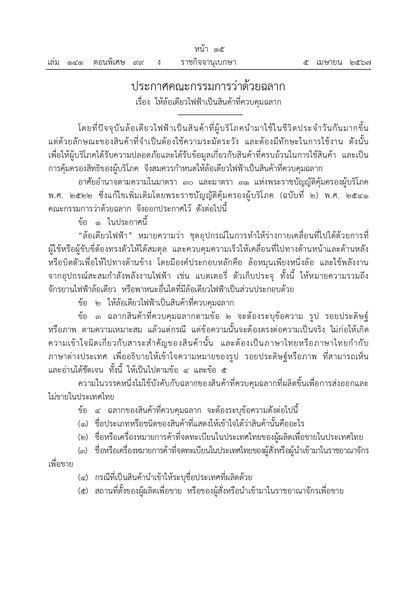“Authorities in Japan have exposed a multimillion baht call scam where victims were tricked by impostors posing as bank officials and law enforcement. Stay vigilant against crafty scammers in the digital age! #JapanScamAlert #StaySafeOnline #BewareOfImpostors #DigitalAgeCaution”
The Operation Unveiled
In a sweeping operation that has shed light on the dark underbelly of telecommunication fraud, authorities in Japan faced a staggering blow as thousands fell prey to a sophisticated call scam operation. Orchestrated by an international quartet, the scam saw victims lose substantial sums to the cunning of impostors who skilfully masqueraded as bank officials and law enforcement.
Modus Operandi: A Deceptive Dance of Trust
The scam’s success lay in the exploitation of trust and fear. Victims received calls where they were convincingly informed about a supposed data breach that put their bank accounts at risk. The solution? They were urged to transfer their funds to ‘secure accounts’—a classic scammer’s ploy. Little did they know, these safety nets were nets indeed, but of the kind that ensnared their wealth and peace of mind.
The Masterminds and Their Minions
At the helm of this illicit enterprise stood two Taiwanese individuals identified by police as Zhen, 50, and He, 40. Their accomplices, Daisuke, 49, and Taro, 41, both Japanese nationals, were the voices that carried out the façade. This international collaboration of deceit knew no bounds as it stretched its tentacles from within the borders of Japan to the unsuspecting Japanese populace.
A Sting Operation and Its Yield
In an impressive display of investigative prowess, the deputy chief investigator of the Immigration Bureau, Pol Col Rathachote Chotikhun, unveiled to the media the arrest of these fraudsters. The group was apprehended from their operational base, a pair of adjacent houses in Samut Sakhon province, and one further individual in the tourist hub of Krabi province. These houses doubled as the nerve center of this elaborate scheme, one serving as a call hub while the other housed the orchestrators.
Evidence Seized: The Trail of Deception
The police’s haul from the raid paints a picture of organized crime. Eleven mobile phones, which no doubt served as the conduits of deception, two notebook computers that likely contained valuable data on their illicit activities, and documentation detailing call transactions were among the seized items. Also among the findings were five cash and credit cards, perhaps the endgame of their fraudulent endeavors.
The Price of Deceit
The financial toll of this scam is nothing short of monumental. With a sum of 9.5 billion baht (approximately 40 billion yen) illicitly funnelled from the pockets of their victims, the scale of this operation is clear. It is a stark reminder of the lucrative allure that drives such unscrupulous activities.
Compensation: A Fraught Incentive Structure
The remuneration for the Japanese callers involved a monthly wage coupled with a percentage of the ill-gotten gains, further fueling their incentive to swindle unsuspecting individuals. This structure of reward only served to perpetuate the cycle of deceit, as each successful scam only increased their take-home pay.
The Aftermath
With the gang now apprehended and the evidence at hand, the legal process begins. The victims, many of whom may never recover their losses, are left to grapple with the betrayal of trust and the financial repercussions that follow. The story serves as a cautionary tale and a call to vigilance in an era where scammers are ever more resourceful and deceitful.
The tale of this call scam is a harrowing account of what can happen when the unscrupulous exploit technology and trust. It serves as a stark reminder of the need for constant vigilance in the digital age. With the perpetrators now facing justice, one can hope for a measure of closure for the victims and a deterrent to those who may be tempted to follow in their fraudulent footsteps.
Frequently Asked Questions
How did the multimillion baht call scam in Japan operate?
The modus operandi of this sophisticated scam was a deceptive dance that played on the trust and fear of the victims. They were contacted by impostors posing convincingly as bank officials or law enforcement, warning them about a supposed data breach that endangered their bank accounts. The so-called solution was to transfer their money into ‘secure accounts’, which were actually controlled by the scammers, effectively entrapping the victims’ funds and sense of security.
Who were the masterminds behind the Japan call scam, and how were they caught?
The scam was orchestrated by two Taiwanese individuals, Zhen, 50, and He, 40, and was executed with the aid of their Japanese accomplices, Daisuke, 49, and Taro, 41. The group was apprehended in a sting operation led by Pol Col Rathachote Chotikhun, the deputy chief investigator of the Immigration Bureau. They were captured from their operational base in Samut Sakhon province, with one additional individual in Krabi province. These locations served as the central hub for their call scam activities.
What has been the aftermath of the call scam revelation, and what can individuals do to protect themselves?
In the wake of the scam, the legal process is underway for the apprehended gang, with a significant amount of evidence seized, including mobile phones, computers, and documents that detail their transactions. The victims, unfortunately, face the reality that they may not recover their lost funds and must deal with the betrayal and financial damage. This incident underscores the importance of remaining vigilant, especially in the digital age, to protect oneself against such deceptive schemes. It is essential to verify any unsolicited communication claiming to be from banks or authorities and to never transfer funds or provide personal information without thorough verification.




